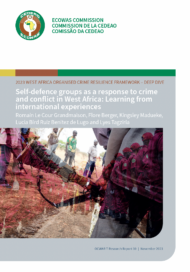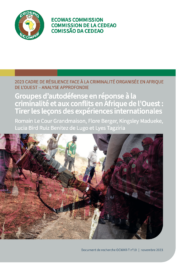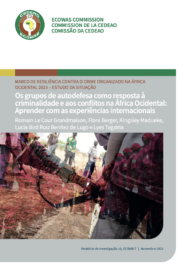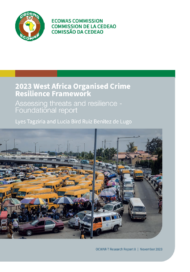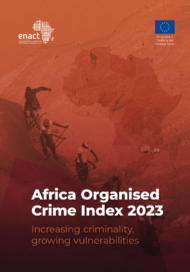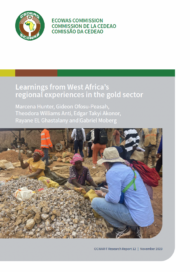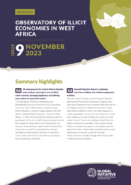Posted on 19 Jan 2024
The 2023 West Africa Organized Crime Resilience Framework (OCRF) is a tool developed by the GI-TOC as part of the Organised Crime: West African Response to Trafficking (OCWAR-T) project. The OCRF sets out the organized crime and security landscape across West Africa, identifying the key risks and vulnerabilities in West African states, as well as providing a nuanced analysis of states’ resilience. Three deep dives focus on informing and assessing existing responses and gearing these towards prevention.
- New approaches to regulating drugs in West Africa: Exploring the impact of Ghana’s drug policy reform
- Self-defence groups as a response to crime and conflict in West Africa: Learning from international experience
- Climate change, illicit economies and community resilience: Niokolo-Koba National Park, Senegal
Vigilante groups have multiplied across West Africa, becoming a prominent political and security concern in some states. The emergence of such groups is the result of accumulated citizen discontent with and mistrust of public authorities and the incapacity of the latter to provide efficient responses to violence and crime in their respective countries.
Historically, these self-defence groups were community-based, but recent trends show a shift towards state sponsorship, as exemplified by Nigeria’s Amotekun and Burkina Faso’s VDP. The report scrutinizes these developments, illustrating how these groups have evolved from local initiatives to more formal elements within national security strategies.
Drawing parallels with Latin American experiences, the report warns of the risks associated with state collaboration with vigilante groups. This approach can undermine state authority and contribute to local power struggles, as these groups often become involved in illicit activities for self-financing. The analysis adopts a pragmatic stance, acknowledging the entrenched role of self-defence groups in West Africa. It suggests that outright opposition to these groups is unrealistic, given their established presence and influence in addressing crime and conflict.
The report does not advocate using self-defence groups as a tool to address crime or conflict. Instead, it adopts a pragmatic approach, departing from the baseline that self-defence groups are already entrenched in response to these interlinked phenomena in the two studied regions. The recommendations are, therefore, targeted at regional institutions, states, and civil society in contexts where self-defence groups are already deployed.
Organized Crime: West African Response to Trafficking (OCWAR–T)
OCWAR–T is a project supporting the ECOWAS Commission and its member states in reducing transnational organised crime. For this purpose, OCWAR-T addresses the strengthening of institutional structures, capacities and knowledge. Specifically, it supports efforts in criminal investigation and prosecution, improving small arms control and reducing human trafficking. The project is coordinated by the Deutsche Gesellschaft für Internationale Zusammenarbeit (GIZ) and co-funded by the German Federal Foreign Office and European Union. The project component is implemented by ISS and GI-TOC in close coordination with ECOWAS, a central stakeholder across the entire OCWAR-T structure.
